10Nov
Ethanol in Cosmetics: An Essential Ingredient for Modern Beauty Products
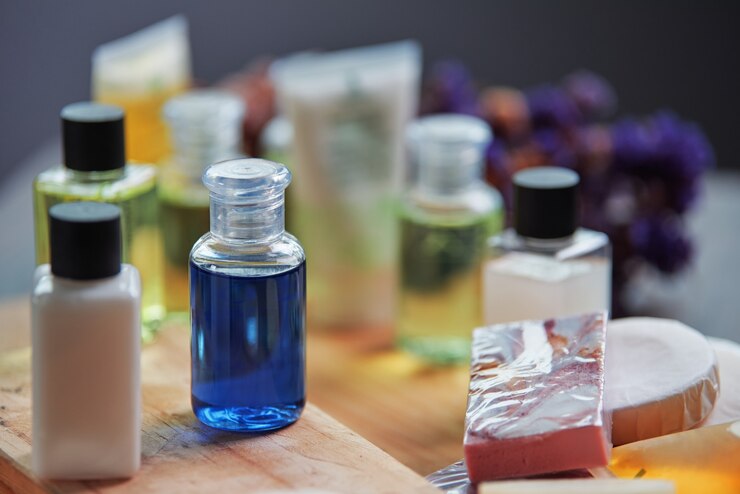
Ethanol, also known as ethyl alcohol, is a versatile ingredient in the cosmetics industry. It plays multiple roles in products like perfumes, skincare items, and makeup, contributing to texture, preservation, and effectiveness. Its ability to act as a solvent, preservative, and quick-drying agent makes it a staple ingredient in many formulations. In this blog, we’ll explore the different ways ethanol is used in cosmetics, why it’s beneficial, and what consumers should know about it.
The Roles of Ethanol in Cosmetics
Ethanol is used in cosmetics for several important reasons. It enhances the stability, texture, and application of products, making it a valuable component for both consumers and formulators.
- As a Solvent: Ethanol is widely used as a solvent in cosmetics to dissolve other ingredients, such as fragrances, active compounds, and oils. This helps create a consistent product texture and ensures that ingredients are evenly distributed, enhancing the product’s performance and user experience.
- As a Preservative: Ethanol’s antimicrobial properties help prevent the growth of bacteria and fungi, extending the shelf life of products. This is particularly important in water-based products like lotions and toners, where the risk of microbial growth is higher. Ethanol’s preservation qualities allow for safer, longer-lasting cosmetics.
- As a Delivery Agent: Ethanol is a common ingredient in products designed to deliver active ingredients into the skin. Ethanol can improve the penetration of active ingredients, allowing substances like vitamins, antioxidants, and anti-aging compounds to reach deeper layers of the skin, increasing their effectiveness.
- As a Texture Enhancer: Ethanol’s quick-drying properties provide a lightweight feel, making it ideal for products like facial toners, astringents, and certain types of makeup. Its evaporation rate helps leave the skin feeling fresh and non-greasy, which is particularly beneficial for people with oily or combination skin.
Common Cosmetic Products That Contain Ethanol
Ethanol can be found in a variety of cosmetics, each utilizing its unique properties to enhance the product’s performance and feel.
1.Perfumes and Fragrances
Ethanol is an essential component of most perfumes and colognes. It acts as a carrier for the fragrance oils, allowing the scent to be dispersed evenly when applied to the skin. Its quick evaporation helps the fragrance molecules lift into the air, enhancing the scent's reach and longevity. Ethanol also has a neutral odor, ensuring that it doesn’t interfere with the fragrance itself.
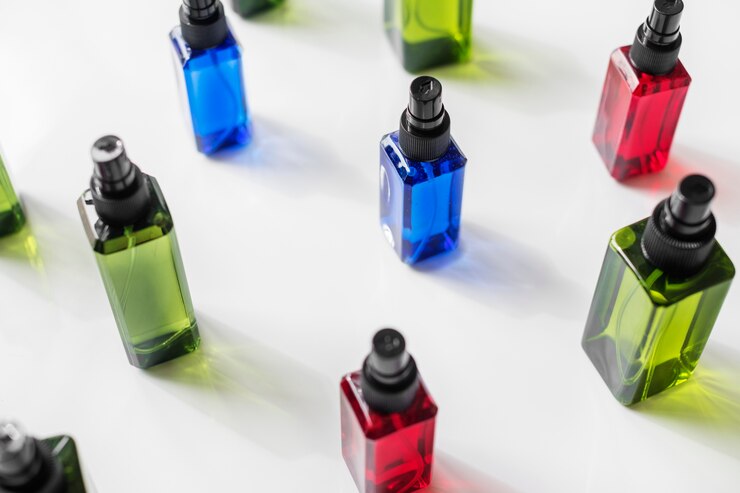
2.Skincare Toners and Astringents
Many toners and astringents use ethanol as a primary ingredient, especially those aimed at oily or acne-prone skin. Ethanol helps to remove excess oil and tighten pores, leaving the skin feeling refreshed and clean. Its fast-drying nature also means that it doesn’t leave any residue on the skin, which is ideal for creating a matte finish.
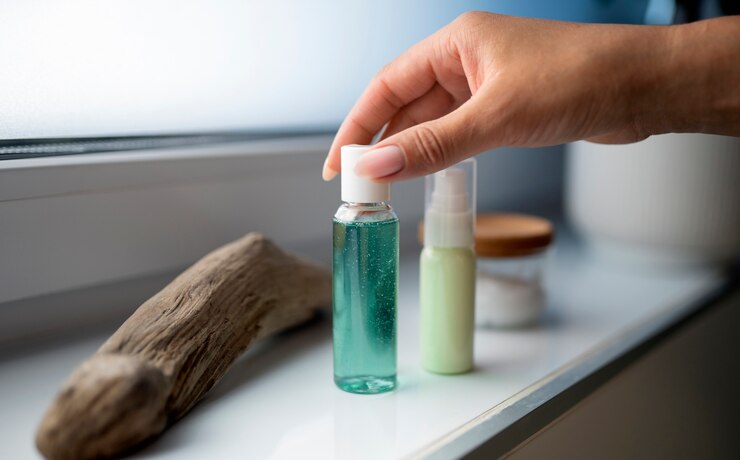
3.Makeup and Setting Sprays
Ethanol is commonly used in makeup formulations, especially in lightweight products such as setting sprays and some foundations. It acts as a solvent to blend pigments and other ingredients, ensuring a smooth application. In setting sprays, ethanol helps makeup to dry quickly and adhere to the skin, keeping it in place throughout the day.
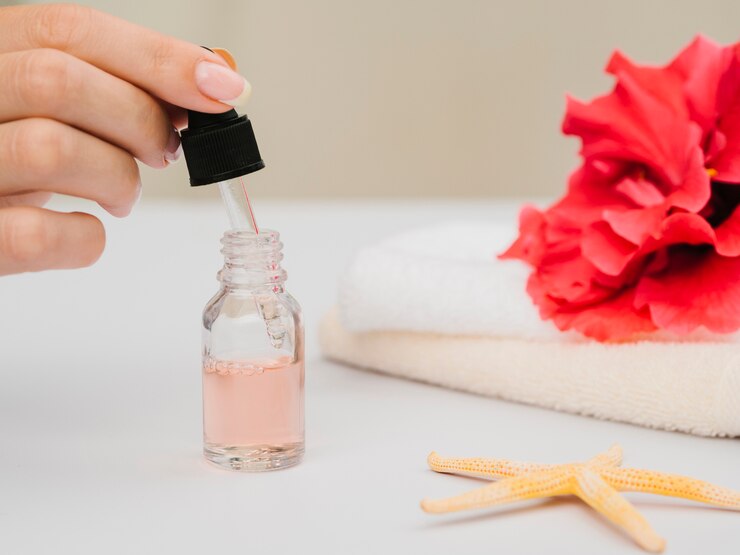
4.Antibacterial and Acne Treatments
Ethanol’s antimicrobial properties make it a common ingredient in acne treatments, cleansers, and hand sanitizers. For acne treatments, ethanol helps clear the skin by drying out excess oil and impurities, which can help reduce the presence of acne-causing bacteria.
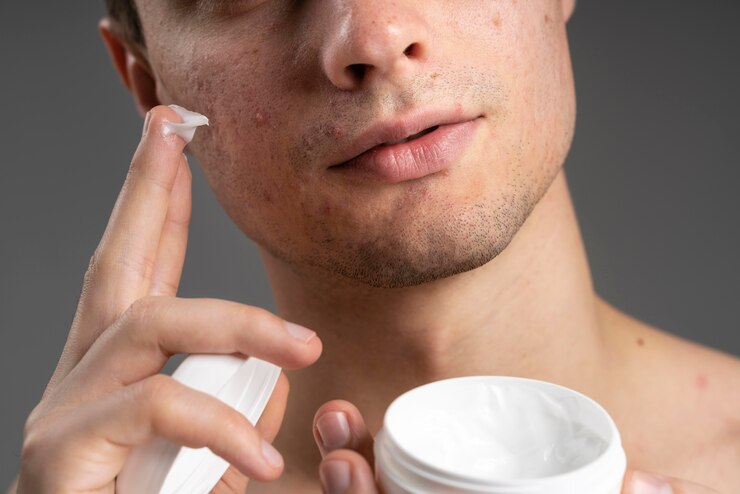
5.Hair Care Products
Ethanol can also be found in certain hair products, including styling sprays and foams, where it helps the product dry quickly and hold hair in place without weighing it down. It’s commonly used in products aimed at creating a lightweight, voluminous effect.
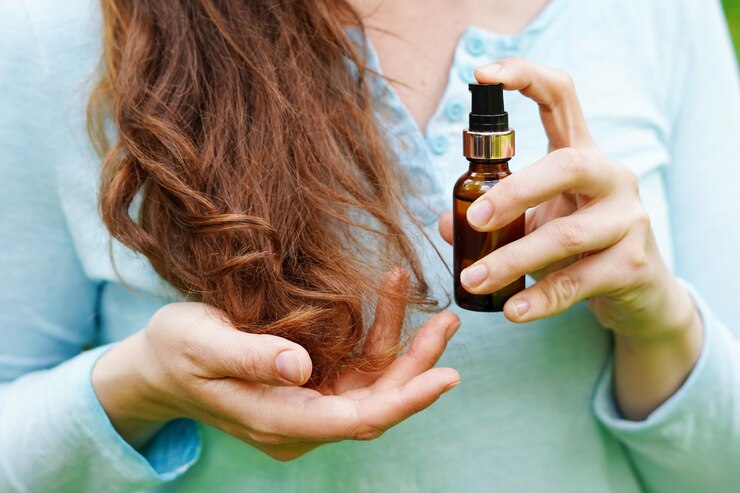
Benefits of Ethanol in Cosmetics
Ethanol offers several advantages for cosmetic products, contributing to both efficacy and user experience:
- Enhanced Product Performance: Ethanol improves the performance of various cosmetics by ensuring a smooth application, quick drying, and even distribution of ingredients. This results in products that not only look better on the skin but also work effectively.
- Longer Shelf Life: As a natural preservative, ethanol helps prevent contamination from bacteria and fungi, extending the shelf life of cosmetics. This ensures that products remain safe and effective over time, reducing the need for additional preservatives.
- Improved Skin Absorption: Ethanol can aid in the penetration of active ingredients in skincare products, which means that beneficial compounds like retinoids, vitamin C, and hyaluronic acid can reach deeper layers of the skin, where they can provide the most benefit.
- Non-Greasy and Lightweight Feel: Ethanol’s quick-drying nature means that it doesn’t leave a heavy or greasy residue. This is ideal for people who prefer lightweight skincare and makeup products, as well as those with oily skin.
Potential Concerns and Considerations with Ethanol in Cosmetics
While ethanol offers many benefits, it’s important to use it in moderation and in formulations designed to be skin-friendly. Here are some factors to consider:
- Potential Drying Effect: Ethanol can have a drying effect on the skin, especially when used in high concentrations or when applied to sensitive areas. This is why it’s often combined with moisturizing ingredients to counteract any potential dryness. Individuals with dry or sensitive skin may want to look for ethanol-free formulations or products that balance ethanol with hydrating components.
- Skin Sensitivity: Some people may experience irritation from ethanol, particularly those with sensitive skin. In cases where ethanol is used at high concentrations, such as in astringents or acne treatments, it’s important to follow usage instructions to minimize any risk of skin irritation.
- Environmental and Ethical Sourcing: Many manufacturers use ethanol derived from sustainable sources like sugarcane or corn, which reduces the environmental impact. When choosing products, look for brands that use sustainably sourced or bio-based ethanol to support eco-friendly practices.
Alternatives to Ethanol in Cosmetics
For those who prefer ethanol-free cosmetics, there are alternative solvents and preservatives that can serve similar purposes:
- Glycerin and Propylene Glycol: These alternatives are commonly used to add moisture and help dissolve active ingredients without the drying effects associated with ethanol. They’re particularly useful in formulations aimed at sensitive or dry skin types.
- Witch Hazel: Often used in toners and astringents, witch hazel provides a gentle alternative to ethanol for those seeking a natural option to refresh and tone the skin.
- Plant-Based Preservatives: Certain plant-based compounds, such as rosemary extract, tea tree oil, and other essential oils, offer preservative properties without the potential for dryness, making them popular in natural skincare products.
Conclusion
Ethanol is a powerhouse ingredient in the world of cosmetics, providing numerous benefits for both performance and preservation. From dissolving fragrances in perfumes to enhancing the shelf life of skincare products, ethanol helps ensure that cosmetics are safe, effective, and enjoyable to use. While it’s important for consumers to be mindful of their skin type and preferences, ethanol’s versatility and benefits make it an essential ingredient for many beauty and personal care products.
As cosmetic technology advances and eco-friendly options grow in popularity, ethanol continues to play a vital role in creating cosmetics that are effective, convenient, and suited to modern beauty needs. Whether you’re applying your favorite perfume, spritzing a makeup setting spray, or cleansing your skin, ethanol is likely enhancing your experience in subtle yet significant ways.
Recent Posts
- Ethanol Screen Wash: A Winter Driving Essential
- Ethanol in Industrial Chemical Manufacturing: A Versatile Building Block for Innovation
- Ethanol as a Biofuel: Fueling the Future with Renewable Energy
- The Role of Ethanol as a Preserving Agent: Enhancing Shelf Life and Safety
- Ethanol in Paints and Varnishes: Enhancing Performance and Sustainability